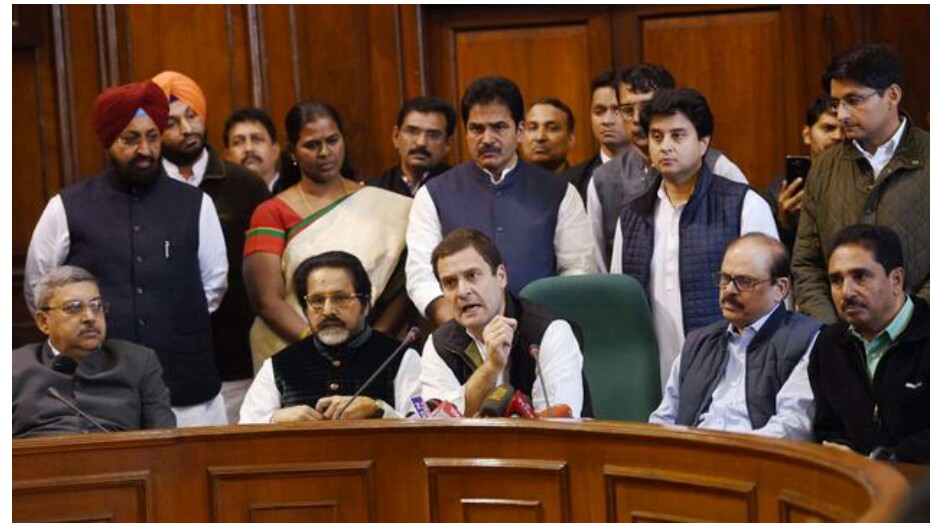Why Is Rahul Gandhi Not Willing to Share Evidence Against PM Outside LS?

NEW DELHI: Delhi Chief Minister Arvind Kejriwal, not very conversant with the functioning of Parliament, asked why Congress leader Rahul Gandhi was not willing to disclose the evidence against Prime Minister Narendra Modi outside Parliament? No leader answered this question publicly but given the fact that Kejriwal did not tweet again, probably he was informed about the reasons why the Congress and the Opposition want to make this disclosure as it were, inside the Lok Sabha.
The answer is simple.
If Rahul Gandhi speaks inside the Lok Sabha he is protected by the privileges of a Member of Parliament. If he speaks of the Prime Ministers ‘corruption’ as he said he will prove, outside Parliament the BJP will rush to the courts and embroil him and others in court cases that will consume time and energy.
Parliamentary privileges allow individual MPs freedom of speech, freedom from arrest and exemption from attendance as witnesses.
Under the Constitution of India, no MP can be taken to task outside Parliament for what he or she says inside in the House or the Committees This is to ensure full freedom to the MPs to raise their voices on issues, without fear or favour. These views of course, are subject to the rules of procedure that Parliament itself formulates to regulate internal procedure.
MPs are also not subjected to arrest, in that no member can be arrested in a civil case 40 days before and after the adjournment of either House. And also when the House--Lok Sabha or Rajya Sabha---is in session. This freedom also gives the MP protection against arrest within the precints of Parliament without the permission of the House to which he or she belongs. If any such arrest or detention is made, the authorities have to immediately inform the Chairperson or the Speaker about the reasons for it. A MP can be arrested outside Parliamen on criminal cases.
The Congress party along with the other Opposition in the Lok Sabha has been trying to get time for Rahul Gandhi to have his say. The treasury benches have been blocking this consistently since the past week, with the Opposition MPs pointing out that this constitutes a first in Indian history, where the ruling party is blocking a discussion in the Lok Sabha.
Rahul Gandhi said in the House that he had ‘explosive’ information. He elaborated on this at a press conference on Wednesday, after both Houses were yet again adjourned, saying that he had evidence to prove that PM Modi was corrupt. He said that the PM was running scared, and that his information was such that the treasury benches were not allowing him to speak in the Lok Sabha.
The privileges available to him individually will ensure that no action outside the House will be possible against Rahul Gandhi, if he is allowed to speak and present the evidence he claims to have to the Speaker in the Lok Sabha. BJP MPs who have refused to allow this intervention, are equally determined to block this leading to a bitter face off that will have the Opposition MPs marching to meet President Pranab Mukherjee on the last day of the winter session of Parliament tomorrow.
It is unlikely that Rahul Gandhi will share the details while Parliament is not in session, raising the bar for the Congress party in that he has succeeded in placing the BJP on the defensive. And letting it be known that there is evidence of corruption against PM Modi as well that he is prepared to share with Parliament if allowed to do so. Despite the attack on him, Rahul Gandhi has scored political points in this face off with the entire Opposition together in cornering the BJP and PM Modi on this issue.
‘Read my lips, PM Modi is corrupt” was the message from Rahul Gandhi’s press conference that the BJP is not being able to counter, except for the usual personal attack against the Congress leader.



